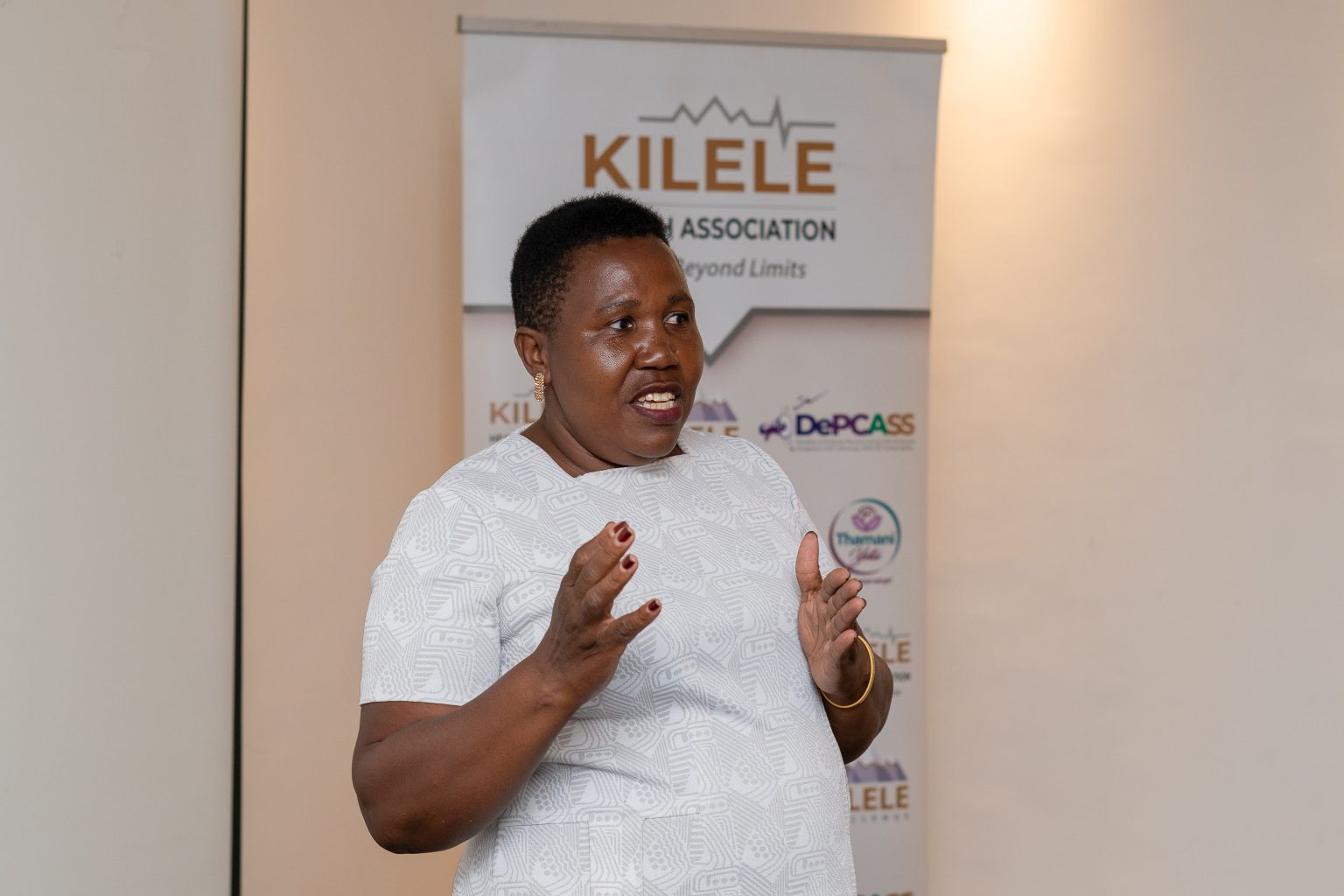By Lenah Bosibori
Judy Wanyoike was a happy mother in 2012. Like any other woman, she did not doubt her capability to conceive and deliver a child any time she felt like having one. However, little did she know that the painful experience every time she made love and the heavy menses that resulted were signs of cervical cancer.
In that same year when her pain persisted, Wanyoike sought a medical practitioner who declared the worst news to her. “I got diagnosed with cervical cancer stage 2B in 2012. It is now 12 years, I am happy that I realized it early but also sad that it led me to lose my womb and both my ovaries. I can’t bear a child anymore,” Wanyoike said sadly.
Wanyoike was speaking in Nairobi during a media training dubbed, “The Role of Media Beyond the Cancer Awareness Month” that brought together journalists from various media houses.
She added that she wishes she knew about the screening early. “If I knew this early, I couldn’t have reached where I am now, without a womb and ovaries. I can’t bear a child anymore but I encourage women to get screened, for the ones with girls with ages 9-14 to get the vaccines so that they won’t be where I am now,” added Wanyoike.
“Let them not reach where I have reached, because if I knew I couldn’t have reached where I am. I had not attained the age of not giving birth, so I got removed because of not knowing,” said Wanyoike.
According to her, she has witnessed many people who have been healed and can bear children again normally contrary to her experience which was at the peak with little options apart from the removal of her ovaries and the womb.
Benda Kithaka, the Executive Director and Founder Kilele Health said with early detection and timely treatment one could live as long as Wanyoike has.
“In Africa sadly, our survival rate is less than 50 per cent on cervical cancer as compared to the global West where they have up to 80 per cent survival rate on cervical cancer,” said Kithaka
“Kenya and many African countries vaccinate only girls, and yet Global West they gender neutral vaccination, they vaccinate both boys and girls the reason they have an 80 per cent survival rate,” added Kithaka.
Dr Mary Wangai Kilele Health Technical Advisor on her part added that cancer of the cervix is the most preventable but again with the most deaths.
“All women are at risk for cervical cancer. It is common among women aged 35-49 years because this is the most productive age and the period women are raising their children,” she adds.
She reiterates that HIV/AIDS positive women have high risk of getting cervical cancer as compared to women who are not positive.
“Cancer of the cervix is the most preventable, and yet it has the greatest number of deaths. Can we turn the tables around, when we look at the global West data, they have done something about it, we can also do something about it,” added Wangai.
“Cancer is an abnormal multiplication of cells and they multiply in a way that they become a nuisance. It is also a group of different diseases. There are more than 200 types of cancers all over, “said Wangai.
Wangai further says that Kenya leads in breast cancer and more women are vulnerable to most of the cancers around.
“We are seeing cervical cancer in early ages; Globally Kenya has joined the force with the World Health Organization (WHO) to make sure that we do something about cervical cancer that will work to eliminate cervical cancer,” adds Wangai
“We have these great targets (90-70-90) that 90 per cent of all our girls should be vaccinated by the time they are 14 years old; the vaccine will prevent the Human Papillomavirus (HPV) that causes cancer. “If we get more resources, we will incorporate our boys because the HPV virus also affects the boy child and they can get cancers as well, not necessarily cervical cancer, ” adds Wangai.
“We also need to get 70 per woman screened for HPV or cervical cancer. Finally, 90 per cent of those that have been identified to have precancerous or cancer will get treated, those are our targets, the more we work together we will be able to manage it,” adds Wangai.
The HPV virus is transmitted through cross-contact with an infected person and causes several cancers.
Some of the risk factors
Early sexual relations, multiple sexual partners, having many children, early marriage, family history (hereditary), smoking, long use of oral contraceptives and unprotected sex.
According to Dr Wangai, cervical cancer is a non-communicable disease one cannot pass it to somebody else. “It is also not sexually transmitted but grows slowly meaning it can take 10-15 years to detect it, the reason it is preventable.
Vaccination of girls ages 9-14 years and HPV screening at least twice in a lifetime, “We focus on screening women because we don’t have the technology to screen men, if all women were screened and young girls vaccinated, we would have no cancers,” said Wangai.




